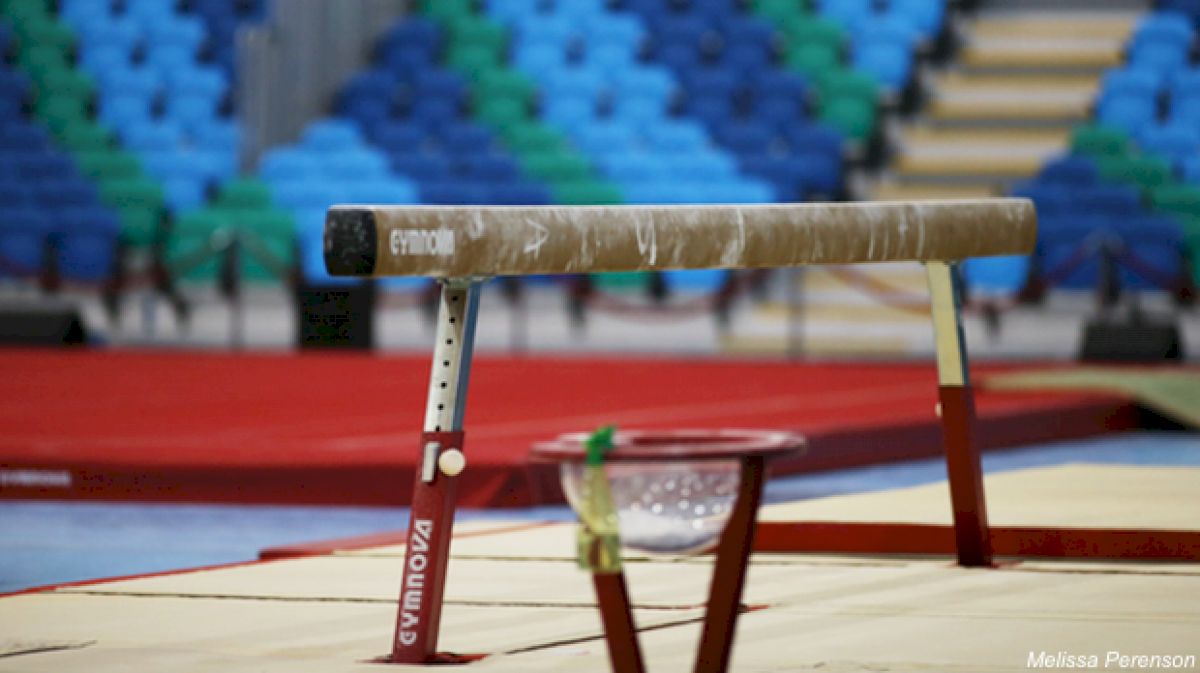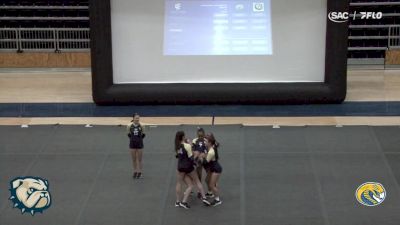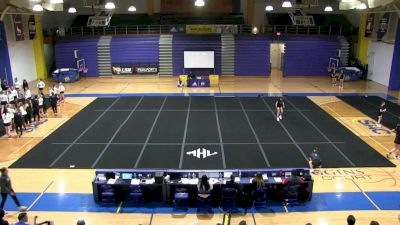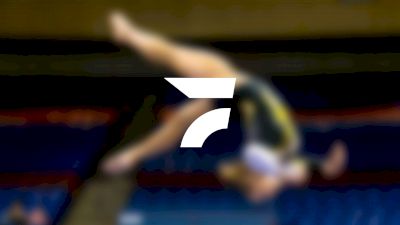Editorial: Why Does Abuse Continue To Plague USA Gymnastics?
Editorial: Why Does Abuse Continue To Plague USA Gymnastics?
In an editorial, FloGymnastics responds to the sexual abuse of young gymnasts and the allegations that implicate USA Gymnastics as a tacit enabler.

Our goal at FloGymnastics is to promote and grow the sport. Our staff is made up of women who grew up as gymnasts, competed through college, and have made it our livelihood to bring the sport to life for fans worldwide. While we love to shed light on the positive aspects of the sport and recognize the incredible accomplishments of gymnasts everywhere, we realize it is also necessary to recognize the problems in our sport to bring about change and keep our sport moving in the right direction. We are horrified by the information that continues to come out about the problem of sexual abuse among gymnasts, first reported by the IndyStar. It was so hard to put words to our thoughts on this, but we knew we had to start a dialogue because we love gymnastics. As a part of the community, we feel obligated to ask questions and seek solutions. When you read this, we hope you do the same.
A pervasive problem
In the past 20 years, more than 368 former gymnasts have come forward to speak about the horrific abuses they suffered as children--a rate of one every 20 days, which is likely an undercount, according to the IndyStar.
It begs the question: Why does this keep happening?
Based on the amount of policy adjustments and new initiatives ushered in under his tenure, Steve Penny, the CEO of USA Gymnastics, has been anything but passive when it comes to stamping out predatory behavior. He helmed a number of significant changes:
2005: The year Penny was named president, USA Gymnastics began hosting sexual misconduct awareness sessions at its annual conferences.
2007: USA Gymnastics made criminal background screening mandatory for its staff, board of directors, and all professional and instructor members.
2009: USA Gymnastics adopted a "participant welfare policy," which defined sexual abuse and made recommendations for how to handle it.
2012: USA Gymnastics launched awareness programs focused on sexual abuse called "Clubs Care" and "We Care Campaigns."
2016: USA Gym responded to Dr. Nassar's arrest by hiring former federal prosecutor Deborah J. Daniels "to conduct an independent review of USA Gymnastics' bylaws, policies, procedures and practices related to handling sexual misconduct matters" and establishing a policy review panel on its board of directors.
2017: The National Center for Safe Sport will open with the goal of helping young athletes identify "misconduct" such as bullying or sexual abuse.
And yet, despite all these improvements, sexual abuse continues to plague USA Gymnastics. Clearly, Penny is not ignoring the problem. This widespread predatory behavior did not start with Penny, but it has not stopped, either. Why? Are the legal systems surrounding child abuse reporting in Indiana promoting a closed-door culture within USA Gymnastics that adopts internal solutions for what should be externally handled situations?
Indiana's loose law
Although the issues that have allowed pedophilia to exist at USA Gymnastics may be multilayered and complex, Indiana's mandatory reporting law is certainly one of the questionable issues lingering in the background. Its vague language and light consequences don't bear the weight of the serious issue it's supposed to govern.
In a statement posted on USA Gym's website on February 16, 2017, the organization outlined a timeline regarding the reporting of Dr. Nassar. When top USA Gymnastics officials received reports of his abuse, the organization first hired an independent investigator to interview the involved gymnasts in order to determine whether it "would be appropriate to notify law enforcement." As a result, five weeks went by before USA Gymnastics reported Dr. Nassar to the FBI.
In an interview with the IndyStar, Shelley Haymaker, an Indiana attorney who represents abused and neglected children, said, "Nowhere in the statute does it say to hire your own investigator. It says to report immediately."
FloGymnastics spoke to Brian Cornwell, a trial lawyer at Lasky Cooper Law in Savannah, Georgia, about Indiana's mandatory reporting law. In an email, he said, "It has been known for many years that the most effective policy to keep children safe from sexual predators is to have a policy to immediately report any and all allegations of sexual misconduct to law enforcement. When the policy is widely publicized within an organization, experts agree that sexual predators tend to avoid these organizations for fear of being caught."
Seems pretty cut and dry, right? Unfortunately, it hardly ever is when it comes to legal matters.
Interpreted literally, the statute only puts the responsibility to report on individuals--not organizations like USA Gymnastics. Indiana Code (IC) Title 31, Section 31-33-5-1, states "… an individual who has reason to believe that a child is a victim of child abuse or neglect shall make a report as required by this article."
USA Gymnastics is fully aware of the legal loophole. Its attorneys attempted to leverage it in the Bill McCabe case by stating it did not breach its duty to report the sexual abuse claims within the letters written by gym owners Dan Dickey and Jan Guinipero, because "The Indiana statute Section 31-33-5-1 likewise imposes reporting requirements only upon 'an individual.'"
In addition, Indiana's statute only has criminal consequences--a class B misdemeanor, not a felony--for individuals who fail to report sexual abuse. And there aren't any provisions within the law that speak to civil liability, making it nearly impossible for victims to sue for damages. Other states, such as Michigan, hold mandatory reporters civilly liable for infractions.
"Currently, the vast majority of State Mandatory Reporting laws regarding sexual misconduct do not provide any civil remedies for a failure to report," Cornwell said. "Based on the culture and conduct of the USOC, USA Gymnastics and other national governing bodies, the only effective method to protect children is a federal mandatory reporting law that requires immediate reporting of any and all allegations of sexual misconduct. Additionally, to be effective, the law must include a civil remedy for the victims for any violation of the reporting requirement."
In its current form, the statute is essentially toothless. If it's that difficult for victims to hold individuals or organizations responsible by suing them for sexual abuse, and the state only classifies the offense as a misdemeanor, then the consequences are not harsh enough. They need to be substantial enough to motivate individuals and organizations to report sexual abuse as soon as there's reason to believe it exists. Would organizations like USA Gymnastics take mandatory reporting more seriously and look to the appropriate external solutions if they could feel the impact of financial penalties incurred from civil lawsuits?
The civil lawsuit filed in 2013 by Lisa Ganser's daughter, who was abused by gymnastics coach Bill McCabe, could establish grounds for other civil cases to succeed against USA Gymnastics by claiming negligence. And if USA Gymnastics loses the case and is hit with $10 million in damages, that sort of financial burden would surely elicit a radical change of policy within the organization.
Dianne Fienstein, U.S. Senator for California, has made public her intention of introducing a federal law that makes it mandatory for USA Gymnastics and other sports governing bodies to immediately report sexual abuse to law enforcement. It would be a huge step in the right direction.
The infamous files
In the Supreme Court of Georgia lie some of the most infamous files in the country.
Its contents include the names of 54 gymnastics coaches accused of sexual abuse between 1996 and 2006. It's unclear if any of those complaints were reported to authorities prior to being stashed away at USA Gymnastics' headquarters, and there's no telling how many more have been added in the past 10 years.
Among them is the letter that gym owner Dan Dickey wrote to Kathy Kelly, the director of the women's program at USA Gymnastics, in 1996 about a coach he just fired:
"To allow this scumbag to continue working within the gymnastic community would be a terrible insult to all of the gym owners and coaches who have worked so hard to build up the reputation of gymnastics," Dickey wrote. "In my opinion, this person has no right to work with children and should be locked in a cage before someone is raped."
Kelly's response?
"I am awaiting an official letter of complaint from a parent and athlete," she wrote in a letter to Dickey. "I will add your letter to the file in the event we receive the letter and an investigation is commenced."
That coach was none other than Bill McCabe, who was arrested 10 years after Dickey's letter reached USA Gymnastics. He is currently serving a 30-year prison sentence for the sexual exploitation of children.
These 54 files are a critical component of the IndyStar's report, "A blind eye to sex abuse: How USA Gymnastics failed to report cases," that ran on August 4, 2016. In the months following that investigation, more than 60 former gymnasts have come forward to accuse Dr. Larry Nassar, the U.S. national team's physician during the last four Olympics, of sexual abuse. A former U.S. national team member, "Jane LM Doe," implicated Nassar with a lawsuit that also accused current USA Gymnastics president Steve Penny and his predecessor Robert Colarossi of overseeing "a wide-ranging, calculated concealment of numerous instances, complaints, and allegations of sexual abuse and misconduct."
USA Gymnastics is fighting to keep these files sealed. If they end up being made publicly available, it would not only be a serious blow to USA Gymnastics' defense in the 2013 Ganser case--it could also lead to more civil actions and force USA Gymnastics to change its approach to child sexual abuse allegations and admit negligence.
USA Gymnastics vice president of communications Leslie King has disputed many of the facts around the IndyStar report, but has not offered any specifics.
Change is needed
As a first step in repairing the damage, we believe the U.S. government should make the failure to report child abuse a felony and give victims the ability to sue those who neglect to report it.
We also believe USA Gymnastics can improve its culture so that it roots out abuse before it starts. USA Gymnastics should never believe it can handle the extremely complex process of launching their own investigations into sexual abuse without first contacting the proper authorities as they did with the Nassar case.
USA Gymnastics needs to change its culture from the top down. Culture is how values and behaviors are communicated throughout the community. It is what people read between the lines. If USA Gymnastics continues to adopt a closed-door approach, it will further delay the healing process the gymnastics community so desperately needs.
Update: 60 Minutes On USA Gymnastics, Dr. Larry Nassar Abuse Scandal
A pervasive problem
In the past 20 years, more than 368 former gymnasts have come forward to speak about the horrific abuses they suffered as children--a rate of one every 20 days, which is likely an undercount, according to the IndyStar.
It begs the question: Why does this keep happening?
Based on the amount of policy adjustments and new initiatives ushered in under his tenure, Steve Penny, the CEO of USA Gymnastics, has been anything but passive when it comes to stamping out predatory behavior. He helmed a number of significant changes:
2005: The year Penny was named president, USA Gymnastics began hosting sexual misconduct awareness sessions at its annual conferences.
2007: USA Gymnastics made criminal background screening mandatory for its staff, board of directors, and all professional and instructor members.
2009: USA Gymnastics adopted a "participant welfare policy," which defined sexual abuse and made recommendations for how to handle it.
2012: USA Gymnastics launched awareness programs focused on sexual abuse called "Clubs Care" and "We Care Campaigns."
2016: USA Gym responded to Dr. Nassar's arrest by hiring former federal prosecutor Deborah J. Daniels "to conduct an independent review of USA Gymnastics' bylaws, policies, procedures and practices related to handling sexual misconduct matters" and establishing a policy review panel on its board of directors.
2017: The National Center for Safe Sport will open with the goal of helping young athletes identify "misconduct" such as bullying or sexual abuse.
And yet, despite all these improvements, sexual abuse continues to plague USA Gymnastics. Clearly, Penny is not ignoring the problem. This widespread predatory behavior did not start with Penny, but it has not stopped, either. Why? Are the legal systems surrounding child abuse reporting in Indiana promoting a closed-door culture within USA Gymnastics that adopts internal solutions for what should be externally handled situations?
Indiana's loose law
Although the issues that have allowed pedophilia to exist at USA Gymnastics may be multilayered and complex, Indiana's mandatory reporting law is certainly one of the questionable issues lingering in the background. Its vague language and light consequences don't bear the weight of the serious issue it's supposed to govern.
In a statement posted on USA Gym's website on February 16, 2017, the organization outlined a timeline regarding the reporting of Dr. Nassar. When top USA Gymnastics officials received reports of his abuse, the organization first hired an independent investigator to interview the involved gymnasts in order to determine whether it "would be appropriate to notify law enforcement." As a result, five weeks went by before USA Gymnastics reported Dr. Nassar to the FBI.
In an interview with the IndyStar, Shelley Haymaker, an Indiana attorney who represents abused and neglected children, said, "Nowhere in the statute does it say to hire your own investigator. It says to report immediately."
FloGymnastics spoke to Brian Cornwell, a trial lawyer at Lasky Cooper Law in Savannah, Georgia, about Indiana's mandatory reporting law. In an email, he said, "It has been known for many years that the most effective policy to keep children safe from sexual predators is to have a policy to immediately report any and all allegations of sexual misconduct to law enforcement. When the policy is widely publicized within an organization, experts agree that sexual predators tend to avoid these organizations for fear of being caught."
Seems pretty cut and dry, right? Unfortunately, it hardly ever is when it comes to legal matters.
Interpreted literally, the statute only puts the responsibility to report on individuals--not organizations like USA Gymnastics. Indiana Code (IC) Title 31, Section 31-33-5-1, states "… an individual who has reason to believe that a child is a victim of child abuse or neglect shall make a report as required by this article."
USA Gymnastics is fully aware of the legal loophole. Its attorneys attempted to leverage it in the Bill McCabe case by stating it did not breach its duty to report the sexual abuse claims within the letters written by gym owners Dan Dickey and Jan Guinipero, because "The Indiana statute Section 31-33-5-1 likewise imposes reporting requirements only upon 'an individual.'"
In addition, Indiana's statute only has criminal consequences--a class B misdemeanor, not a felony--for individuals who fail to report sexual abuse. And there aren't any provisions within the law that speak to civil liability, making it nearly impossible for victims to sue for damages. Other states, such as Michigan, hold mandatory reporters civilly liable for infractions.
"Currently, the vast majority of State Mandatory Reporting laws regarding sexual misconduct do not provide any civil remedies for a failure to report," Cornwell said. "Based on the culture and conduct of the USOC, USA Gymnastics and other national governing bodies, the only effective method to protect children is a federal mandatory reporting law that requires immediate reporting of any and all allegations of sexual misconduct. Additionally, to be effective, the law must include a civil remedy for the victims for any violation of the reporting requirement."
In its current form, the statute is essentially toothless. If it's that difficult for victims to hold individuals or organizations responsible by suing them for sexual abuse, and the state only classifies the offense as a misdemeanor, then the consequences are not harsh enough. They need to be substantial enough to motivate individuals and organizations to report sexual abuse as soon as there's reason to believe it exists. Would organizations like USA Gymnastics take mandatory reporting more seriously and look to the appropriate external solutions if they could feel the impact of financial penalties incurred from civil lawsuits?
The civil lawsuit filed in 2013 by Lisa Ganser's daughter, who was abused by gymnastics coach Bill McCabe, could establish grounds for other civil cases to succeed against USA Gymnastics by claiming negligence. And if USA Gymnastics loses the case and is hit with $10 million in damages, that sort of financial burden would surely elicit a radical change of policy within the organization.
Dianne Fienstein, U.S. Senator for California, has made public her intention of introducing a federal law that makes it mandatory for USA Gymnastics and other sports governing bodies to immediately report sexual abuse to law enforcement. It would be a huge step in the right direction.
The infamous files
In the Supreme Court of Georgia lie some of the most infamous files in the country.
Its contents include the names of 54 gymnastics coaches accused of sexual abuse between 1996 and 2006. It's unclear if any of those complaints were reported to authorities prior to being stashed away at USA Gymnastics' headquarters, and there's no telling how many more have been added in the past 10 years.
Among them is the letter that gym owner Dan Dickey wrote to Kathy Kelly, the director of the women's program at USA Gymnastics, in 1996 about a coach he just fired:
"To allow this scumbag to continue working within the gymnastic community would be a terrible insult to all of the gym owners and coaches who have worked so hard to build up the reputation of gymnastics," Dickey wrote. "In my opinion, this person has no right to work with children and should be locked in a cage before someone is raped."
Kelly's response?
"I am awaiting an official letter of complaint from a parent and athlete," she wrote in a letter to Dickey. "I will add your letter to the file in the event we receive the letter and an investigation is commenced."
That coach was none other than Bill McCabe, who was arrested 10 years after Dickey's letter reached USA Gymnastics. He is currently serving a 30-year prison sentence for the sexual exploitation of children.
These 54 files are a critical component of the IndyStar's report, "A blind eye to sex abuse: How USA Gymnastics failed to report cases," that ran on August 4, 2016. In the months following that investigation, more than 60 former gymnasts have come forward to accuse Dr. Larry Nassar, the U.S. national team's physician during the last four Olympics, of sexual abuse. A former U.S. national team member, "Jane LM Doe," implicated Nassar with a lawsuit that also accused current USA Gymnastics president Steve Penny and his predecessor Robert Colarossi of overseeing "a wide-ranging, calculated concealment of numerous instances, complaints, and allegations of sexual abuse and misconduct."
USA Gymnastics is fighting to keep these files sealed. If they end up being made publicly available, it would not only be a serious blow to USA Gymnastics' defense in the 2013 Ganser case--it could also lead to more civil actions and force USA Gymnastics to change its approach to child sexual abuse allegations and admit negligence.
USA Gymnastics vice president of communications Leslie King has disputed many of the facts around the IndyStar report, but has not offered any specifics.
Change is needed
As a first step in repairing the damage, we believe the U.S. government should make the failure to report child abuse a felony and give victims the ability to sue those who neglect to report it.
We also believe USA Gymnastics can improve its culture so that it roots out abuse before it starts. USA Gymnastics should never believe it can handle the extremely complex process of launching their own investigations into sexual abuse without first contacting the proper authorities as they did with the Nassar case.
USA Gymnastics needs to change its culture from the top down. Culture is how values and behaviors are communicated throughout the community. It is what people read between the lines. If USA Gymnastics continues to adopt a closed-door approach, it will further delay the healing process the gymnastics community so desperately needs.
Update: 60 Minutes On USA Gymnastics, Dr. Larry Nassar Abuse Scandal
Related Content
 Replay: Lander vs Mars Hill | Mar 28 @ 6 PM
Replay: Lander vs Mars Hill | Mar 28 @ 6 PMMar 29, 2024
 Replay: Coker vs Wingate | Mar 21 @ 6 PM
Replay: Coker vs Wingate | Mar 21 @ 6 PMMar 22, 2024
 Replay: Wingate Tri-Meet - Acrobatics & Tumbling | Mar 15 @ 5 PM
Replay: Wingate Tri-Meet - Acrobatics & Tumbling | Mar 15 @ 5 PMMar 15, 2024
 Replay: Mars Hill Tri-Meet | Feb 16 @ 6 PM
Replay: Mars Hill Tri-Meet | Feb 16 @ 6 PMFeb 17, 2024
 Replay: King (TN) vs Wingate - 2024 2024 King (TN) vs Wingate - Acrobatics & Tumbling | Feb 10 @ 4 PM
Replay: King (TN) vs Wingate - 2024 2024 King (TN) vs Wingate - Acrobatics & Tumbling | Feb 10 @ 4 PMFeb 10, 2024
 Replay: Belmont Abbey vs Mars Hill | Feb 10 @ 3 PM
Replay: Belmont Abbey vs Mars Hill | Feb 10 @ 3 PMFeb 10, 2024
 How to Watch: 2024 King (TN) vs Wingate - Acrobatics & Tumbling | Gymnastics
How to Watch: 2024 King (TN) vs Wingate - Acrobatics & Tumbling | GymnasticsFeb 10, 2024
 How to Watch: 2024 Wingate Tri-Meet | Gymnastics
How to Watch: 2024 Wingate Tri-Meet | GymnasticsFeb 8, 2024
 How to Watch: 2024 Wingate Tri-Meet | Gymnastics
How to Watch: 2024 Wingate Tri-Meet | GymnasticsFeb 8, 2024